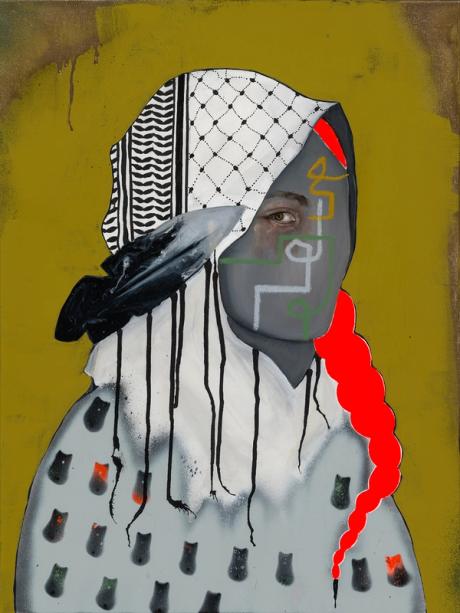
The American Civil Liberties Union (ACLU) of Colorado has filed a lawsuit against the city of Vail on behalf of the artist Danielle SeeWalker, alleging that the municipality violated her federal and state right to free speech when it cancelled her residency earlier this year after she posted an image in support of Palestine on Instagram. The lawsuit was filed in district court in Colorado on 14 October.
In January 2024, the town of Vail invited SeeWalker to be a summer artist-in-residence. The residency was part of Vail’s Art in Public Places Program (AIPP), which is overseen by a volunteer board appointed by the Town Council. AIPP offered SeeWalker two weeks of housing, a mural commission and participation in several community engagement activities. After months of planning, a site visit and negotiating a fee and materials budget of $10,000, Vail officially announced SeeWalker as the AIPP’s artist-in-residence on 6 May. One day later, Vail officials informed SeeWalker that her residency was cancelled due to an image she had posted on Instagram of a work depicting a woman wearing a keffiyeh and titled G for Genocide. The painting, which was unrelated to the residency and the work SeeWalker planned to show in Vail, was for sale and, according to the post, raising money for the United Nations Crisis Relief Fund to aid Palestinians.
“The government cannot award grants based on invidious viewpoint-based discrimination, and the government cannot deny a benefit or opportunity to someone because of their constitutionally protected speech,” Laura Moraff, a lawyer for ACLU of Colorado who is representing SeeWalker, tells The Art Newspaper. “The government is also not permitted to retaliate against a person because of their protected speech. In this case, Vail made no secret of its reasons for cancelling Ms SeeWalker’s residency.”
The ACLU’s filing includes correspondence between Vail officials that shows that SeeWalker’s Instagram post was the reason for the cancelled mural commission and residency, and that an email from the rabbi Joel Newman on 7 May likely initiated the town’s about-face.
Rabbi Newman of the B’nai Vail Congregation emailed several town officials on 7 May, stating that SeeWalker “proudly displays her work claiming that Israel is committing genocide” with the painting G for Genocide, which he wrote was “abhorrent to the Jewish world”. He continued to state that while Israel’s war in Gaza “contains casualties, it is not genocide”. He added that the more than 3,000 Jewish families that live in and visit Vail were deeply concerned with the town’s selection of SeeWalker.
That same day, SeeWalker received a text message from Molly Eppard, the AIPP’s coordinator, notifying her that the residency was cancelled due to the painting. On 9 May, the artist received a call from Kathleen Halloran, the deputy town manager, saying that while Vail wanted to have diversity in its residency programme (SeeWalker is a Húŋkpapȟa Lakȟóta artist), because SeeWalker had shared a political work that upset the Jewish congregation she was no longer invited. The town reiterated this position in a 14 May announcement on its website, explaining that “SeeWalker’s recent rhetoric” on the Hamas-Israel war resulted in the town’s withdrawn commitment.
“Two things can be true at the same time, I can have empathy for people in Palestine, but also be very supportive of Jewish people,”SeeWalker tells The Art Newspaper. “I don’t understand how me supporting Palestine equals me being anti-Jewish. That’s just not the case.”
Kris Widlak, communications director for the town of Vail, would not comment on pending litigation or the future of the residency programme. Vail Town Council held regularly scheduled meetings on 15 October, but did not mention the lawsuit, only stating that an informational meeting with AIPP was held. The minutes and agenda of that meeting were not publicly available at the time of publication.
SeeWalker and the ACLU of Colorado are seeking monetary relief and a declaration by the court that Vail violated the artist’s constitutional rights. They also encouraged the court to prohibit Vail from revoking future residency opportunities based on works that are unrelated to the programme.










